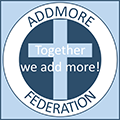Reading
Individual Reading
Individual reading materials are carefully graded by reading fluency and comprehension usig 'Accelerated Reader'. Across the school (Y2-6), the children are introduced to high quality text selections and are taught the skills of reading comprehension through frequent Guided Reading sessions where skills such as inference, deduction and retrieval are explicitly taught and practised. The progression in these skills, from Year 2 to 6, are clearly outlined in our reading progression document; teachers revisiting and building on prior learning, whilst also introducing new knowledge and teaching new skills, constatntly.
Pupils are encouraged to develop the habit of reading widely and often both for pleasure and information. The importance of this is shared with paretnts and the wider community through the termly 'Reading Newsletter' for example. Other reading materials are available in school including fully and partly decodable phonic books to aid children needing phonics support; year group texts for sharing; books to support specific children (for example dyslexic); and topic collection class library books and books which explore a varieity of themes such as gender and diversity to support cross-curricular work.
Teaching Phonics
Across the Addmore Federation, phonics is taught through daily whole class Phonics lessons using the 'Little Wandle' validated phonics scheme. It is used daily from the Early Years Foundation Stage throughout Key Stage 1 in a highly structured way to ensure the integrity and fidelity of the programme is maintained. It provides an understanding of phonics and key words and their use in reading and writing with daily opportunities to recap prior learning, before introducing the new and, for those requiring some additonal support, daily 'Keep Up' sessions in addition to the daily Phonics lesson are incorporated. For a more detauled break down please refer to our Early Reading and Phonics page on the website.
Reading at home
Reading with your child is the most useful, productive, powerful and enjoyable activity to do at home that will not only help them achieve at school, but also strengthen your relationship. That’s why we left weekly homework behind some years ago; we want to make sure EVERY child (and grown-up) at Moreton Say Primary School LOVES reading as much as their teachers do!
Reading with your child is a lot more than just hearing them read their school books – here are some ideas to help you and your child develop a love of reading:
- Help them with their phonics sounds as they read
- Read to them; model how a story should be read with exciting pitch, tone, pause, punctuation and character voice
- Read a range of different types of text – NOT JUST THEIR SCHOOL BOOK!
- Discuss what they are reading: ask questions about what might happen next and about what has already happened
- Share your favourite books
- Visit the Library – IT’S FREE!
- Make time for stories EVERY night: a routine is always good and story time can be a very special time for children and the parents/carers to share together.
Our English Curriculum, coverage of the National Curriculum, skills and knowledge, and detailed progression document outling the steps in learning our pupils make to build their knowledge and skills in Reading are detailed in the downloadable document listed at the bottom of this page. Please also find below our d Early Reading and Phonics Policy. More information on this subject can be found on our Early Reading and Phonics Page located in the 'Learning' section of our website.

